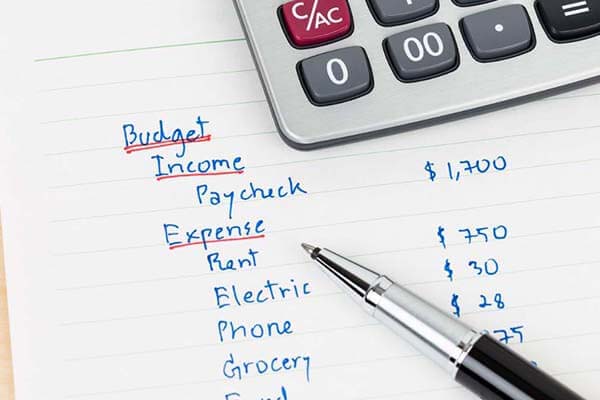Preparing for a Recession: Embracing Your Personal Finances
COVID-19 has brought on a global recession, according to S&P Global. With much of the world sheltering-in-place to stop the spread, economies have slowed to a crawl. Americans alone have filed more than 30 million unemployment claims.
While COVID-19 might be unlike anything we’ve faced in our lifetime, recessions aren’t. Preparing for a recession requires a few key steps now so you can help protect yourself and your finances in the months to come.
We asked our Quicken Advocates for their best tips on planning, staying ahead of financial uncertainty, and even creating financial goals for a recession.
Quick tips for preparing for a recession:
- Create a Budget…But Don’t Sweat the Small Stuff
- Be flexible during times of financial uncertainty.
- Track your spending.
- Look for price jumps.
- Maximize your credit card rewards.
Create a Budget … But Don’t Sweat the Small Stuff
Your first financial goal for a recession should be creating a household budget. Knowing how much you have coming in and what your expenses are not only helps keep your debt down, but it can help you put more cash away for emergencies or your retirement—two key worries for many Americans right now.
Trouble is, many expenses vary a little month to month. Going over here and there can make you feel like you can’t keep it under control and shouldn’t bother. To keep on track, look at your budget as a whole and aim for balance, not perfection.
“It is times like these where you can really see the benefit of a budget. Quicken makes this easy by creating one based on your previous transactions. The key to avoiding frustration is to not sweat small differences and concentrate on what you must do to keep your budget as balanced as you can,” says Thomas.
Getting it done with Quicken: Connect your accounts to automatically categorize spending. Quicken scans your transactions to create a personalized budget based on your recent spending habits.
Be Flexible
With so much economic uncertainty in the world right now, creating a traditional budget may not work for you—and that’s OK. A budget works best if it is personalized to you, and your needs may change over time with the recession. For example, if your income has become irregular, it may make more sense to budget for your minimum needs, rather than divide your income into categories.
“Budgeting has always been hard for my wife and me. We always seemed to have more expenses than money coming in. That’s before I started using Quicken’s Bill and Income reminder. Because I don’t know how much I’m making right now (thank you, COVID-19), I just add up our expenses, add 10% in order to pay tithing to our church, and then I know how much we’ll need for the month,” says Richard.
Getting it done with Quicken: You can keep on top of your due dates with Quicken. To input your bills, visit the “Stay on Top of Monthly Bills” section and follow the prompts. Reminders will now appear in your register. You can also use the Bill & Income feature to automatically track online bills.
Track Your Spending
Once you have a budget in place, tracking your spending can help you keep within your limits. Tracking your purchases—even the small ones—can also help you see where you’re overspending.
“I have been tracking literally every penny in Quicken for many years. While it may seem challenging at first, Quicken reports give you a whole new level of visibility on your spending. Most people have no idea how much they spend on some items in a year,” says Micheal.
Getting it done with Quicken: Quicken can automatically categorize your spending for you. Once your accounts are linked, you can view all your spending in one place, verify charges, and easily spot leaks in your budget.
Make Tracking Work for You
Tracking expenses not only helps you see trends in your own spending, it can help you spot increases as well. If you suddenly find yourself spending more at the grocery store, for example, that could be down to eating at home more as you practice social distancing, or it could mean the prices have gone up. If you track your purchases over time, it’ll be easier to spot these trends early and switch to a more affordable retailer.
“Because I’ve been tracking grocery expenses with Quicken, I’ve noticed that retailers are increasing their pricing. Need to be watchful, however, comparison shopping is a challenge now,” says Bruce.
Getting it done with Quicken: Sort your spending by payee, type of expense, or transaction history to see all of your charges with one retailer at a glance. Use that snapshot to easily spot increases.
Take Advantage of Credit Card Rewards
If you feel tempted to put your credit cards away right now and stick to all cash purchases, we understand. No one wants to go into debt when they’re worried about their future. But if you have reward cards, you might be missing out on opportunities to earn.
Pull out your credit card agreements and make notes of any rewards you get and where you need to shop to maximize your benefits. Then, use your credit cards to make your everyday purchases and pay the balance off each month.
“I use credit cards to my advantage. I have used my [General Motors Corp.] card for my down payment to add rewards toward my next car. I get a cash refund from Sams each year of about $250. It has been a few years since I have paid for a hotel due to my rewards. The key is not charging anything you do not have the money to pay for when the bill comes due. I use Quicken to autopay my credit cards in full on the due date,” says Don.
Getting it done with Quicken: Earning rewards periodically? Set a reminder in Quicken for your cash out date. As the date is approaching, you’ll know at a glance which credit cards to use to maximize your rewards before the next cut off date.
Remember, achieving financial goals in a recession is possible, but slow and steady wins the race. Keep your habits consistent and you’ll build a secure future to help you outlast the recession and stay on track with your plans.
Quicken has made the material on this blog available for informational purposes only. Use of this website constitutes agreement to our Terms of Use and Privacy Policy. Quicken does not offer advisory or brokerage services, does not recommend the purchase or sale of any particular securities or other investments, and does not offer tax advice. For any such advice, please consult a professional.



